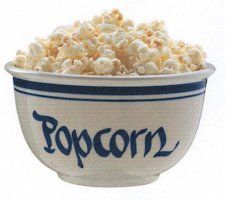
|
Some Common Myths Thought to be True - Myth 89
Myth 89: Eating Nuts, Popcorn, or Seeds Increase Diverticulitis Risk
There is good news for people with diverticular disease who have been told to
avoid nuts, corn, and popcorn.
Instead of increasing the risk for the digestive disorder diverticulitis, as
has long been suspected, these foods may actually lower risk of the condition,
according to findings from the first large study to address the issue.
About a third of Americans will develop small pouches of the colon, a condition
known as diverticulosis, by the time they reach age 60; two-thirds have the
pouches by age 85.
Most people with diverticulosis experience no symptoms, but as many as one in
four will develop diverticulitis, a potentially serious condition characterized
by intense pain in the lower, left side of the abdomen and possible nausea,
vomiting, cramping, and bleeding, according to the National Institutes of
Health.
|
|
Since at least the 1950s many doctors have advised patients who have
diverticular disease to restrict nuts, corn, popcorn -- and even vegetables
with seeds like tomatoes -- on the theory that the indigestible components of
these foods would lodge in the pouches, causing symptoms.
"It is not exactly clear where this idea came from because there are no studies
showing this to be the case," researcher Lisa L. Strate, MD, MPH, tells WebMD.
"It just became a part of medical lore." Men who ate nuts, corn, or popcorn
frequently were found to have no greater risk for developing diverticulitis or
diverticular bleeding than men who rarely ate the foods.
In fact, men who ate nuts at least twice a week had a 20% lower risk of
diverticulitis than men who ate nuts less than once a month; men who ate
popcorn at least twice a week had a 28% lower risk. "For decades people have
been told that eating these foods increases complications associated with
diverticular disease, but our results suggest they don't," Strate says.
|
